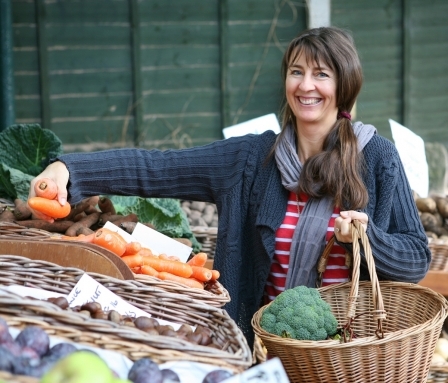Top tips for healthy living through the decades by Harrogate lifestyle expert Debbie Saxton
20’s
The rapid growth of your teens and early childhood is now behind you and this is the perfect time to set firm foundations for future health. Dieting is a big temptation at this age but simply cutting fat out of the diet creates many health issues, one of the most significant of these being an inability to produce healthy levels of sex hormones. This can lead to fertility problems, something you want to avoid in your 20’s. Believe it or not there are lots of factors other than fat consumption that make you gain weight, including having too many artificial sweeteners in your diet.
It’s important to put plenty of goodness into your body – fresh fruit and veg at every meal, preferably before every meal. Alternatively consider juicing, have a fresh smoothie daily or take a daily multivitamin and mineral supplement.
Poor posture and weak muscles creep in during this decade unless you get proactive with some form of regular exercise you enjoy. This can be on your own or in a group so find something you enjoy and stick with it.
Don’t believe you are invincible – if you don’t look after your body from this point onwards it will not be kind to you!
30’s
Stress tends to build in this decade. Children may now be part of your life, you may be sleep deprived, pressured by work and losing the time to put any effort into your own health. However, the next 20 years will set the tone for the older age you will live so making a few simple changes to the way you eat and move will help you avoid chronic illness in the years to come.
Eat plenty of fresh food. Take daily Omega 3 supplements and a good quality probiotic twice a week to improve digestion and reduce sugar and wheat cravings. Probiotics can be bought from most health food shops and shouldn’t be confused with the yoghurt drinks available in supermarkets.
Water consumption is something that tends to drop off in this age group, being replaced by tea, coffee and alcohol. You need a water rich diet to be healthy and should aim to drink two litres a day.
Try to fit some type of activity into each day, even if it’s taking the stairs instead of the lift, and three times a week do something that really gets your heart pumping. This could be a brisk walk, a swim or a jog. In a busy life you need plenty of stamina to keep up with the demands of work and family.
40’s
This is probably the most productive decade of your life so keep your weight down and your energy high and you will go into your 50’s in great shape.
Chemical toxins in processed food, medication and the environment can start to take their toll now so avoid artificial sweeteners and processed white bread where possible and start to look for alternatives to dairy products such as soya milk to prepare your body for hormonal changes ahead. Low fat food options are popular with women in this age group but they are often packed with artificial additives so beware.
It’s tempting to miss meals but don’t do it, even if you are very busy. Handfuls of nuts and seeds can give you a quick energy boost but never go without regular food – it panics the body which then stores up your next meal as fat!
Consider taking up something like yoga or Pilates to tone your core and maintain flexibility and maintain gentle daily exercise routines. Don’t ignore injuries – always get them checked out.
50’s
Half a century and hopefully you are hardly feeling it. If you started looking after yourself from early adulthood you will be slim, energetic and happy with your health. If you didn’t you need to get busy quick!
Pile in nutrients to supply your body with what it needs to be healthy. You can turn things around with self-discipline and determination. Juice daily and try a juice diet to drop weight if you need to. My personal recommendation is Jason Vale’s 7lbs in 7days routine. Weight falls off, you feel great and you never go back to your old ways.
If you are menopausal, embrace the process. Don’t fill your body with synthetic hormones – we didn’t try and start our cycle early at puberty with drugs so why prolong it with drugs at the other end? There are consequences to all drug use so try natural alternatives to cope with life’s changes, such as cutting dairy and grains out of your diet or at least reducing your intake dramatically. Keep sugars low and use natural sugars when necessary.
Weight bearing regular exercise keeps ageing bones stronger and must be done daily. Walking at a pace is sufficient but higher impact exercise can be more effective. Do gentle stretches daily to keep your limbs supple.
60’s
One of the biggest worries in these years is degenerative joints and osteoporosis. Your internal pH is very important and when it is pushed towards the acid end of the scale the body reacts by taking essential nutrients out of the blood stream, bones and teeth. This has serious health consequences, primarily osteoporosis.
Maintain good joint health with omega 3 fatty acids. The added benefit of these oils is improved brain and nervous system function, so a real plus to help prevent Alzheimer’s and dementia. Eating smaller portions as you age helps maintain a healthy weight.
Drink water slowly throughout the day. It will keep your entire body healthy but above all it will give your skin elasticity, help your kidneys function easily and ensure your blood pressure doesn’t elevate through dehydration.
You may not be jogging round the block daily now or climbing to the top of mountains but stay active. If you retire in these years do not let yourself become inactive. Take up hobbies that require movement. You can adapt exercise patterns as you age but never give them up!
For more healthy lifestyle advice visit www.completelifestyle.co.uk








